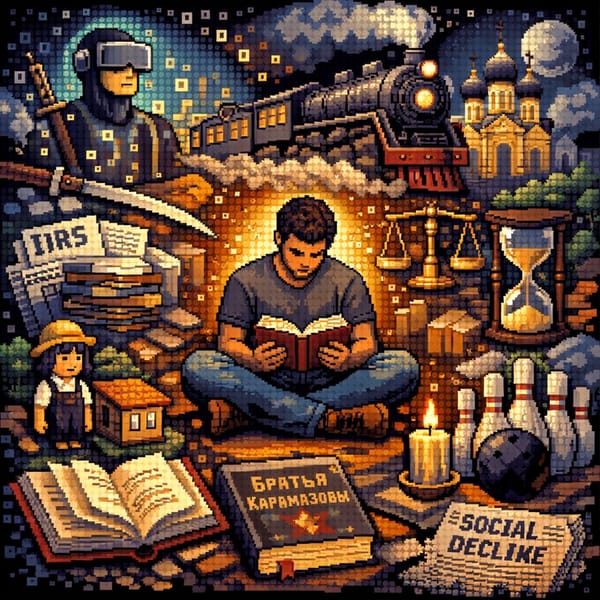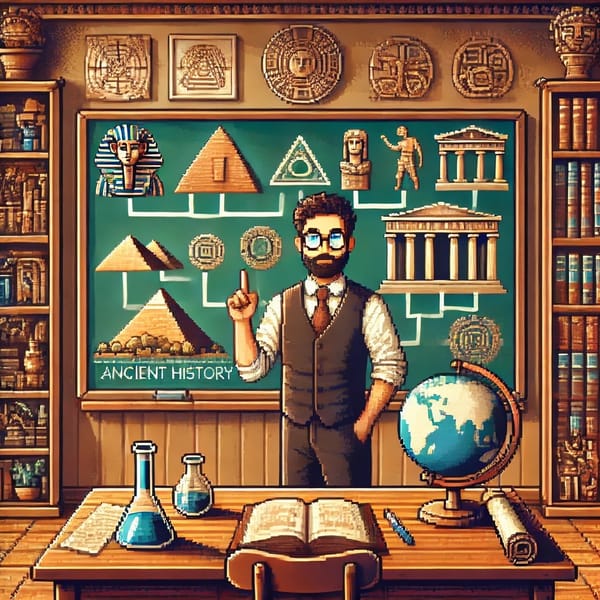Magnitude's Melancholy

Sitting in a restaurant the other day, I saw a picture of a group of people eating outside what seemed to be the original location. Ten people chatted with warm smiles on their faces. When I looked away from the picture, I saw something different. A dimly lit restaurant with stickers peeling off their tea spouts. What changed?
Scale
The restaurant grew from a single location into a chain. Now, they can copy and paste their restaurant to new geographies, but it lacks the charm and care of the original. If each one were unique, there wouldn’t be any advantages to the newfound scale. The experience becomes more consistent, but the variance and uniqueness enabled the original charm.
Software companies face similar problems for different reasons. Recently, an article was passed around technology circles titled The Tyranny of the Marginal User. As software companies get bigger, they need to appeal to a more significant user base to continue growing at the same pace. This may require making the product worse for the customers they already have. The article uses OKCupid as an example. Before being acquired by Match.com, it had a niche, but now it is just another Tinder clone focused on growth.
Examples
Below are a couple of examples of this phenomenon I think about the most.
Globalization vs. Japanese Businesses
We want things to be cheap, so they need to be made in bulk by a small number of companies. Items made in bulk must have mass appeal (i.e., bland) and use abundant (i.e., cheap) materials. Follow this to its logical end, and we have mass-produced ugly apartment buildings that look like they could easily be blown over.
In contrast, some businesses in Japan have been around for over 1,000 years[1]. They survived because they didn't try to scale. They maintained their values and focus instead of trying to be everything to everyone. They were precisely what a specific subset of people needed, allowing them to focus on quality over price.
Twitter vs. Cafes
Beyond the emotional toll it seems to take on people, Twitter creates popular narratives for industries. As I mentioned last week, finding people like us online is now easier than ever, but there is a downside. If a large subset of finance is all on FinTwit, it becomes an echo chamber.
Would Einstein have made the same discoveries if he was alive today and in the physics Tiwtter-sphere? Probably not, because if you want different output, you need different input. Too many people allow their algorithms to control their inputs, prioritizing being "up to date"[2] over their ability to think differently from others[3].
Cafe culture is the opposite. People are first linked by location instead of similarity of interests. You will be exposed to different perspectives your feed lacks. The closest digital parallel is small blogs or forums like LessWrong, but even those attract a particular type of individual. Selfishly, though, I try to use this as my cafe. I am sending out ideas that have been rolling around my mind to friends to get their perspectives that are usually unique to mine.
Tradeoffs
At what point do we prioritize cost and ability to scale more than charm and character? Or the ability to fit in over the ability to have new ideas? Making things cheaper raises the bar for how everyone lives from a consumerist perspective, but it feels like there is more to value than economics. I don’t think this is a law of nature, but more a tendency. It can be avoided, but it isn’t easy.
I am unsure why I have spent so much thinking about this topic. One reason could be that it is sad that we prioritize traditional success or money over real joys in life, particularly in the United States[4].
Another reason could be that it implies a lifestyle-career tradeoff. If you want to do something big, like be the CEO of a large company or a politician, you lose part of yourself. You must try to be everything to everyone. I don’t think anything is inherently wrong with that avenue, but it is a trade-off that sounds less appealing with age.
- Fun fact: Akio Morita, founder of Sony, was trained from a young boy to take over his family’s nearly 400-year-old sake, miso, and soy sauce business.
- It is just entertainment, not helpful information, which is the confusion that leads people to think it is valuable. I am anti-news, so take this with a grain of salt.
- The idea that your algorithm controls your thoughts is terrifying and a primary reason for people considering banning TikTok.
- If you haven’t read Heinrich Böll’s short story about the fisherman on this topic, I think it is particularly poignant.



